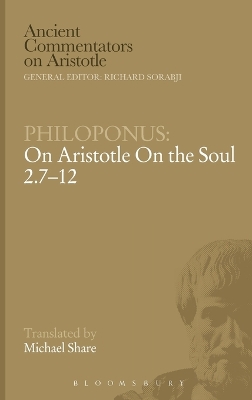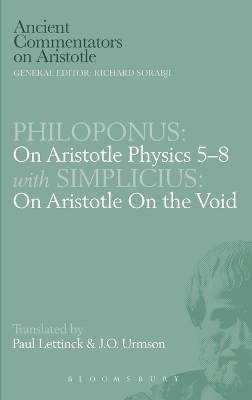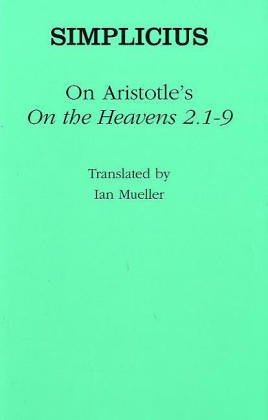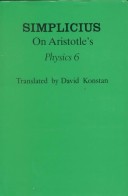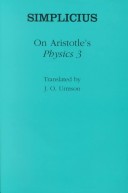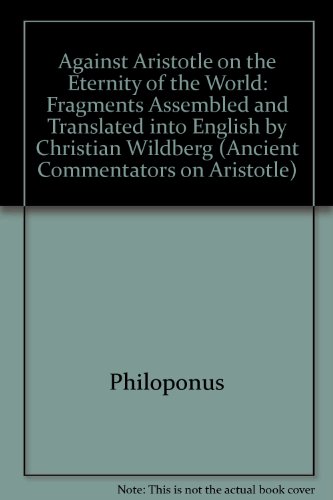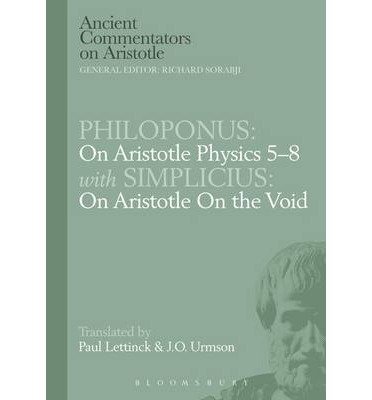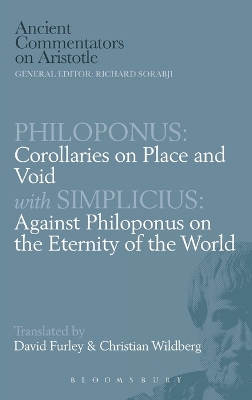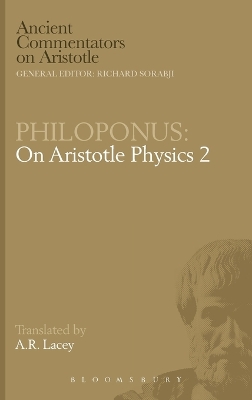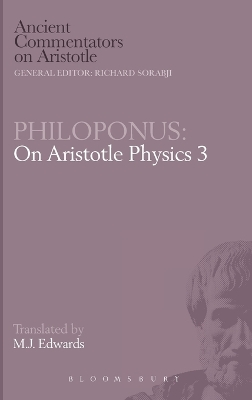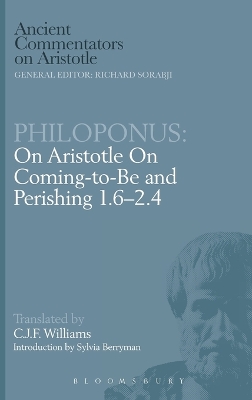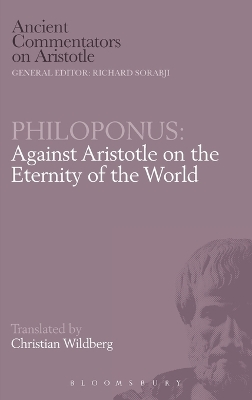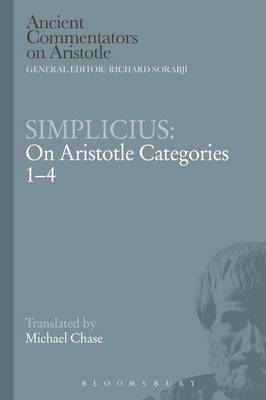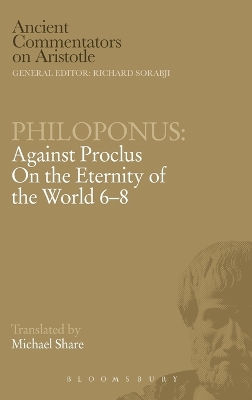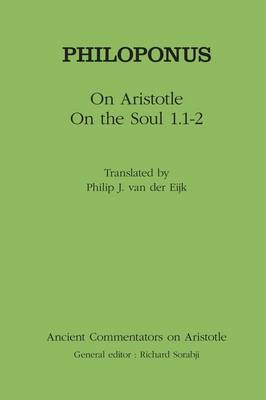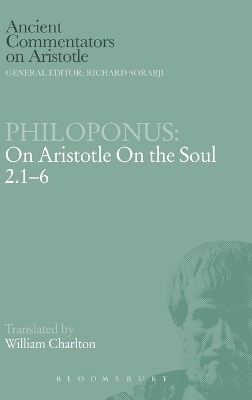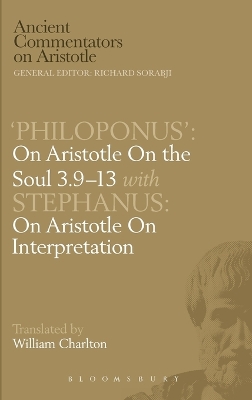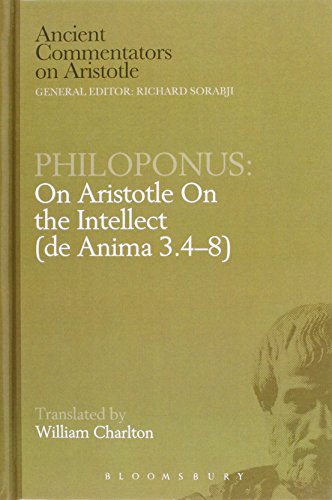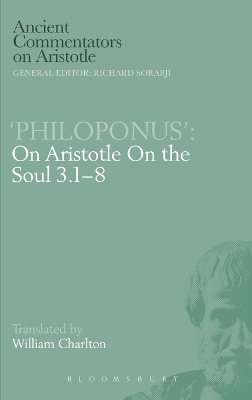Ancient Commentators on Aristotle
52 total works
On the other hand, Philoponus shows knowledge of the sensory nerves, and he believes that thought and anger both warm us. This is used elsewhere to show how we can tell someone else's state of mind.
The Simplicius text, which consists of his comments on Aristotle's treatment of the void in chapters 6-9 of Book 4 of the Physics, comes from Simplicius' huge commentary on Book 4. Simplicius' comments on Aristotle's treatment of place and time have been translated by J. O. Urmson in two earlier volumes of this series.
On Aristotle's "Physics 5-8 " with on Aristotle on the Void
by Philoponus and Simplicius
The second half of Book 3 introduces Aristotle's doctrine of infinity as something which is always potential, never actual, never traversed and never multiplied. Here, as elsewhere, Philoponus the Christian turns Aristotle's own infinity arguments against the pagan Neoplatonist belief in a beginningless universe. Such a universe, Philoponus replies, would involve actual infinity of past years already traversed, and a multiple number of past days. The commentary also contains intimations of the doctrine of impetus - which has been regarded, in its medieval context, as a scientific revolution - as well as striking examples of Philoponus' use of thought experiments to establish philosophical and broadly scientific conclusions.
Philoponus also discusses Aristotle's idea that the elements and their basic qualities survive potentially when mixed together. He explains this by drawing a third sense of 'potential' out of Aristotle's texts to take the place of the two senses which Aristotle explicitly recognises.
Philoponus adds further restrictions to Aristotle's principles of causation. Black can contaminate white, but the black in ebony does not have the right matter for affecting the white of milk. He asks why fluids can affect each other more easily than solids.
In every case, Philoponus takes Aristotle's discussions further, and his ideas on the dependence of some qualities on others are very relevant to the continuing philosophical debate on the subject.
He has benefited from Galen's knowledge of the brain and nerves, but also propounds the Neoplatonist belief in tenuous bodies which after death support our irrational souls temporarily, or our reason eternally.
The two treatises of Aristotle here commented on are very different from each other. In On Interpretation Aristotle studies the logic of opposed pairs of statements. It is in this context that Aristotle discusses the nature of language and the implications for determinism of opposed predictions about a future occurrence, such as a sea-battle. And Stephanus, like his predecessor Ammonius, brings in other deterministic arguments not considered by Aristotle ('The Reaper' and the argument from God's foreknowledge). In On the Soul 3.9-13, Aristotle introduces a theory of action and motivation and sums up the role of perception in animal life.
Despite the differences in subject matter between the two texts, Charlton is able to make a good case for Stephanus' authorship of both commentaries. He also sees Stephanus as preserving what was valuable from Ammonius' earlier commentary On Interpretation, while bringing to bear the virtue of greater concision. At the same time, Stephanus reveals his Christian affiliations, in contrast to Ammonius, his pagan predecessor.
This commentary on Aristotle's text has traditionally been ascribed to Philoponus, but William Charlton argues here that it should be ascribed to a later commentator, Stephanus. (The quotation marks used around his name indicate this disputed authorship.) 'Philoponus' reports the postulation of a special faculty for self-awareness, intended to preserve the unity of the person. He disagrees with 'Simplicius', the author of another commentary on On the Soul (also available in this series), by insisting that Imagination can apprehend things as true or false, and he disagrees with Aristotle by saying that we are not always free to imagine them otherwise than as they are. On Aristotle's Active Intellect. 'Philoponus' surveys different interpretations, but ascribes to Plutarch of Athens, and rejects, the view adopted by the real Philoponus in his commentary on Aristotle's On Intellect that we have innate intellectual knowledge from a previous existence. Instead he takes the view that the Active Intellect enables us to form concepts by abstraction through serving as a model of something already separate from matter. Our commentator further disagrees with the real Philoponus by denying the Idealistic view that Platonic forms are intellects.
Charlton sees 'Philoponus' as the excellent teacher and expositor that Stephanus was said to be.
